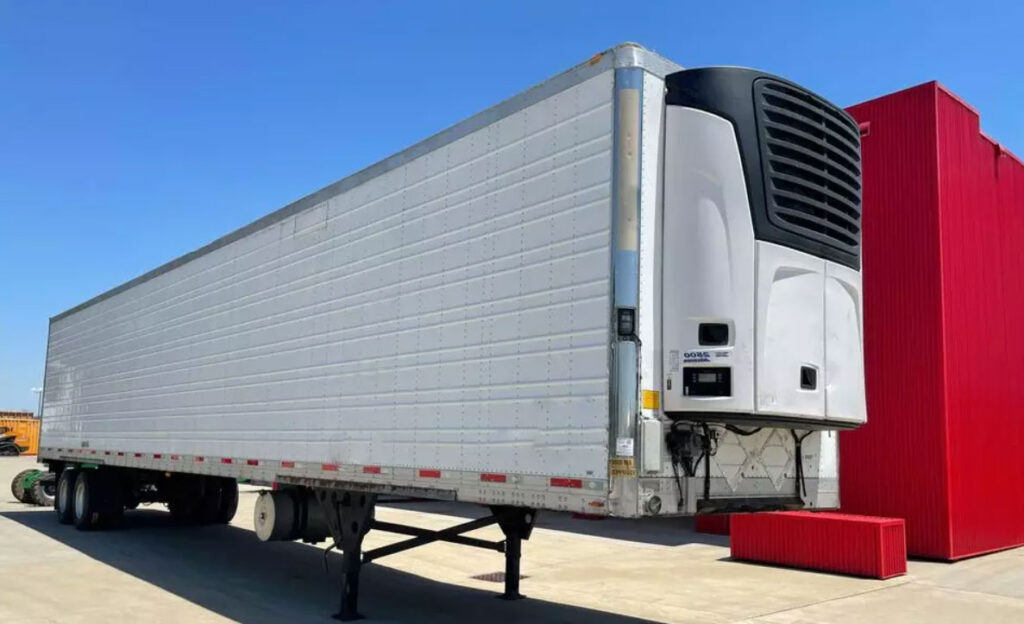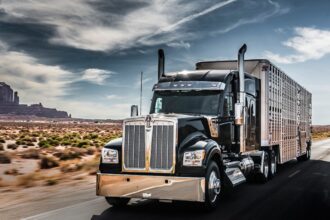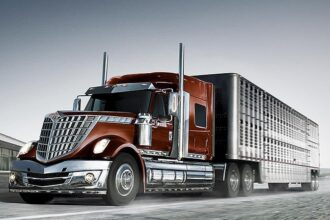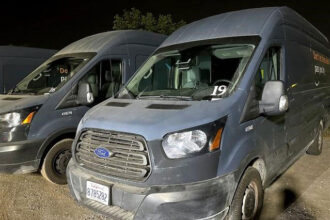Table of Contents
Dive into the world of reefers, where the cool breeze of opportunity meets the warm waters of success. Welcome to the Reefer Business Checklist, your passport to thriving in the lucrative realm of refrigerated logistics. In this dynamic industry, precision is paramount, and the Reefer Business Checklist is your trusted companion, ensuring smooth sailing through the seas of supply chain management.
Picture this: as you navigate through the checklist, you’re not just ticking boxes, you’re unlocking doors to unparalleled efficiency and profitability. From meticulous temperature control to timely maintenance, every item on this checklist is a stepping stone towards excellence.
Feel the adrenaline rush as you optimize routes, maximize payload, and deliver perishable goods with precision timing. With the Reefer Business Checklist in hand, you’re not just running a business; you’re orchestrating a symphony of success. Harness the power of technology to monitor your fleet in real-time, ensuring every shipment arrives fresher than the ocean breeze.
Embrace the challenges, for its merely opportunities in disguise. With the Reefer Business Checklist as your compass, you can navigate through storms and emerge stronger on the other side. Say goodbye to uncertainty and welcome to a future where your business thrives in every climate. So, dive in and let the Reefer Business Checklist be your guiding star.
To know the reefer business checklist:
1. Understand Legal Requirements
2. Invest in Quality Equipment
3. Develop Strong Supplier Relationships
4. Implement Robust Cold Chain Management
5. Train Staff on Handling Procedures
6. Maintain Regulatory Compliance
7. Offer Value-Added Services
8. Monitor Performance and Adapt
Recap
1. Understand Legal Requirements
Familiarize yourself with the legal regulations governing the reefer business, including licensing, permits, and compliance with health and safety standards. This ensures that your operations adhere to the law and mitigates the risk of penalties or fines. Understanding the legal landscape provides a solid foundation for establishing and running your reefer business with confidence and integrity.
Here’s a breakdown of the key legal considerations:
Operating Authority
Obtain a license from the Federal Motor Carrier Safety Administration (FMCSA) to transport goods for hire across state lines or for a fee.
Interstate vs. Intrastate Authority
Interstate authority is needed for transporting goods across state lines, while intrastate authority applies within a single state.
Specialized Types of Authority
There are specific types of operating authority for different cargo, such as household goods, hazardous materials, and tankers. For reefer trucks, the Reefer Motor Carrier Authority and the Reefer Freight Forwarder Authority are pertinent.
Compliance with State and Federal Laws
Comply with both state and federal regulations, which involve filing paperwork, paying taxes, and ensuring safety and quality standards are met.
Workplace Regulations
As an employer, you must pay correct wages, abide by work health and safety regulations, have workers’ compensation insurance, and not act in ways that may harm an employee’s reputation or well-being.
International Considerations
When operating internationally, you must adhere to the varying laws and regulations of the countries you operate in to ensure safety, quality, and conformity.
Food Safety Regulations
Reefer businesses involved in transporting perishable goods are subject to food safety regulations to ensure the safe handling and transportation of food products. Compliance with regulations such as the Food Safety Modernization Act (FSMA) in the United States or equivalent regulations in other countries is essential to prevent contamination and maintain food quality during transit.
Transportation Regulations
Regulations governing transportation standards and practices ensure the safety and integrity of cargo during transit. Reefer vehicles must comply with vehicle weight limits, load-securing requirements, and regulations for transporting hazardous materials, if applicable. Additionally, drivers may need specific licenses or certifications to operate reefer vehicles legally.
Environmental Regulations
Adhere to environmental regulations governing refrigerant usage and emissions from refrigeration units. Compliance with regulations such as the Clean Air Act in the United States involves proper maintenance of refrigeration equipment to minimize emissions of ozone-depleting substances and greenhouse gases.
Insurance Requirements
You need insurance coverage to protect against liability, property damage, cargo loss, and other risks associated with operating in the transportation and logistics industry. Compliance with insurance requirements helps mitigate financial risks and ensures adequate protection in case of accidents or unforeseen events.
>>>MORE: Reefer Business How to Find Loads
2. Invest in Quality Equipment
Prioritize the acquisition of reliable and efficient reefer units and transportation vehicles. Quality equipment ensures the safe and optimal transportation of temperature-sensitive goods, minimizing the risk of spoilage or damage during transit.
Investing in top-notch equipment may require a significant upfront investment, but it pays off in the long run through enhanced customer satisfaction and reduced maintenance costs.
3. Develop Strong Supplier Relationships
Cultivate partnerships with reputable suppliers of perishable goods to ensure a steady and consistent supply chain. Strong relationships with suppliers facilitate timely deliveries and access to high-quality products, which are crucial for maintaining customer satisfaction and loyalty.
Regular communication and mutual trust contribute to a smooth and efficient supply chain operation, benefiting both parties involved.
4. Implement Robust Cold Chain Management
Establish stringent cold chain management protocols to maintain the integrity of temperature-sensitive cargo throughout the transportation process. This involves monitoring and controlling temperature levels, humidity, and other environmental factors to prevent spoilage or contamination.
Implementing robust cold chain management practices ensures the freshness and safety of perishable goods, safeguarding your reputation and business success.
5. Train Staff on Handling Procedures
Provide comprehensive training to your staff on proper handling procedures for perishable goods and reefer equipment. Well-trained employees understand the importance of temperature control, hygiene, and safety protocols in preserving product quality during transportation and storage.
Ongoing training and reinforcement of best practices promote efficiency and consistency in operations, minimizing the risk of errors or accidents.
6. Maintain Regulatory Compliance
Stay up-to-date with regulatory requirements and industry standards related to food safety, transportation, and environmental regulations. Compliance with regulations ensures the legality and integrity of your reefer business operations while prioritizing the health and safety of consumers.
Regular audits and inspections help identify and address any compliance gaps, maintaining your business’s credibility and trustworthiness.
>>>GET SMARTER: Reefer Business Ideas
7. Offer Value-Added Services
Differentiate your reefer business by offering value-added services such as temperature monitoring, tracking, and customized packaging solutions. These services enhance the overall customer experience and provide added convenience and peace of mind to clients.
By going above and beyond basic transportation services, you establish your business as a reliable and trusted partner in the cold chain logistics industry.
8. Monitor Performance and Adapt
Continuously monitor the performance of your reefer business, tracking key metrics such as on-time delivery rates, temperature compliance, and customer satisfaction. Analyze data and feedback to identify areas for improvement and implement necessary adjustments to optimize efficiency and quality.
Flexibility and adaptability are essential in responding to changing market demands and customer needs, ensuring the long-term success and sustainability of your reefer business.
Recap
The Reefer business checklist ensures the smooth and efficient operation of businesses involved in transporting temperature-sensitive goods. By addressing key aspects such as legal compliance, equipment quality, and supply chain management, you can optimize your operations and minimize risks.
Understanding legal requirements ensures that you operate within the bounds of the law, mitigating the risk of penalties or fines. Investing in quality equipment guarantees the safe and reliable transportation of perishable goods, enhances customer satisfaction, and reduces maintenance costs.
Cultivating strong supplier relationships fosters a dependable supply chain, ensuring timely deliveries and access to high-quality products. Implementing robust cold chain management practices safeguards the integrity of perishable cargo, maintaining product freshness and safety.
Providing comprehensive staff training promotes efficient handling procedures and minimizes the risk of errors. Maintaining regulatory compliance ensures the legality and credibility of business operations, while offering value-added services enhances the customer experience and loyalty. Continuously monitoring performance and adapting to changing market demands ensures the long-term success and sustainability of the reefer business.



















